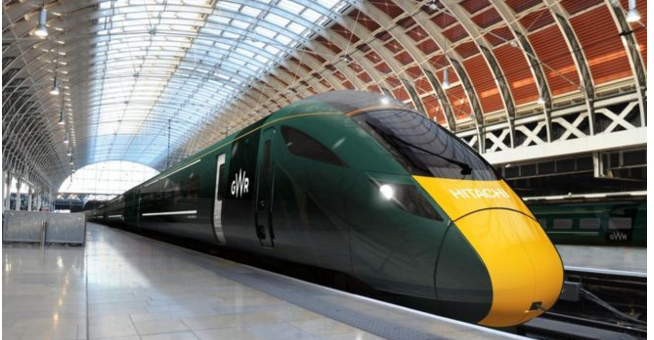Could first class rail travel be about to hit the buffers?
Government floats the idea of ending class distinction on the South Eastern network

Your support helps us to tell the story
From reproductive rights to climate change to Big Tech, The Independent is on the ground when the story is developing. Whether it's investigating the financials of Elon Musk's pro-Trump PAC or producing our latest documentary, 'The A Word', which shines a light on the American women fighting for reproductive rights, we know how important it is to parse out the facts from the messaging.
At such a critical moment in US history, we need reporters on the ground. Your donation allows us to keep sending journalists to speak to both sides of the story.
The Independent is trusted by Americans across the entire political spectrum. And unlike many other quality news outlets, we choose not to lock Americans out of our reporting and analysis with paywalls. We believe quality journalism should be available to everyone, paid for by those who can afford it.
Your support makes all the difference.Could first class rail travel be about to hit the buffers? The Department for Transport has floated the idea of ending class distinction on the South Eastern network, which connects Kent and East Sussex with London.
In a new consultation document, the DfT says: “We recognise that first class tickets remain popular on certain routes, notably on the South Eastern main line to Sevenoaks, Tonbridge and Tunbridge Wells. However, removing it would create more room for passengers, which would be important during peak hours.”
The Government asks passengers: “Would you support removing first class seating on the busiest routes to provide more space?”
In the most recent National Rail Passenger Survey, the current franchise holder was among the worst performing train operators for customer satisfaction. Only elements of the strike-hit GTR franchise performed worse.
Mark Smith, the founder of the Seat61.com international rail website, was previously a British Rail manager on the South Eastern network. He said: “Southern and Southeastern have persevered with first class until now, but strangely in their case the first class section is often quite literally identical to Standard Class, with the same seat layout and even the same seat fabric.
“I get the impression keeping a few seats designated as ‘first class’ is a sop to a handful of long-standing first class commuters, just to avoid having an argument with them. I think it would be no great loss if this odd situation came to an end, and the trains became standard class only. Which physically, were it not for a few notices and the ticketing, they already are.”
Some transport campaigners also welcomed the move. Lianna Etkind, public transport campaigner at Campaign for Better Transport, said: “Overcrowding is a major problem and it can be galling to see people lounging comfortably in half-empty first class carriages when you're crammed nose to armpit in cattle class every day, so addressing this on South Eastern would be welcome.
“We need to get more people off the congested roads and onto rail, and this means creating space on trains.”
With rail passenger numbers doubling in the past 20 years, pressure on commuter routes into London is intense.
Chris Woodcock, the editor of the European Rail Timetable, pointed out: “The high-speed services between Kent and London St Pancras are standard class only so it would bring the remainder of their commuter services in line with their fastest services.”
Great Western Railway, which operates from London Paddington to the Thames Valley, South Wales and the West Country, has sharply reduced the number of first-class seats on both commuter and long-distance routes. In 2011, about half the space allocated to first class on High Speed Trains was re-assigned to standard. Most long-distance trains now have 600 seats, only 40 of which are first class. This ratio will be maintained in the new rolling stock due to enter service before the end of the year.
Virgin Trains, which runs Anglo-Scottish services on the East and West Coast lines, has “no plans” to remove first class. A spokesperson said: ”As a long-distance operator we look to cater for the needs of all our customers whether they're travelling for business or leisure."
Mark Smith said that, on longer-distance services, “there is always a market for extra space and comfort at extra cost, especially for those who need to work”.
His local train operator, Chiltern became one-class only in 2002.
“Standard class on many of their new main-line trains is now more comfortable than the old ex-BR first class I used to use on their routes pre-1995,” he said.
Chiltern introduced a Business Zone in 2011 – a “premium economy” service which can be accessed by anyone with any ticket, including Advance, with payment of a supplement.
On Arriva Trains Wales, only one train a day offers first class: the north-south service that runs from Holyhead to Cardiff in the morning and back in the evening.
Join our commenting forum
Join thought-provoking conversations, follow other Independent readers and see their replies
Comments